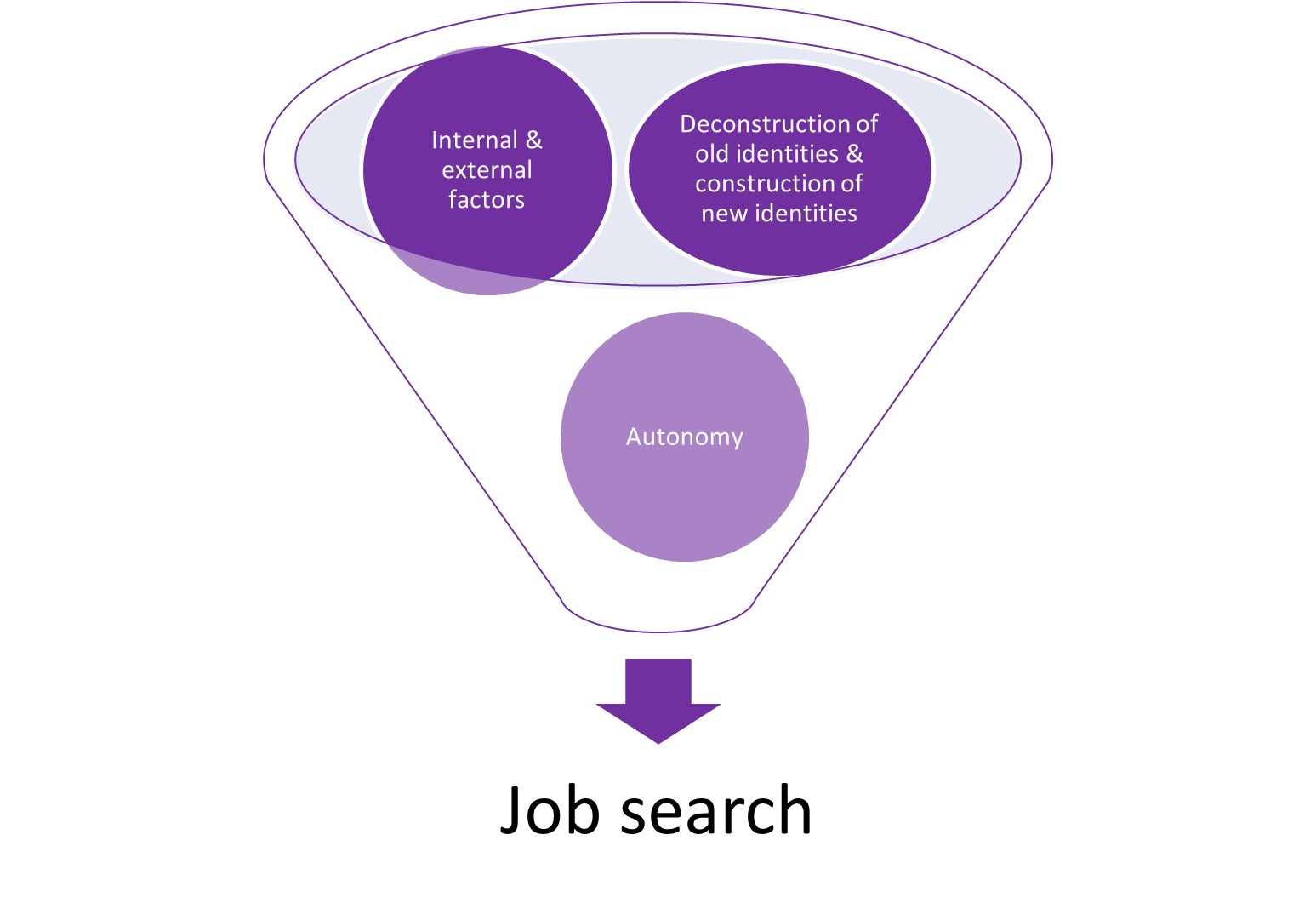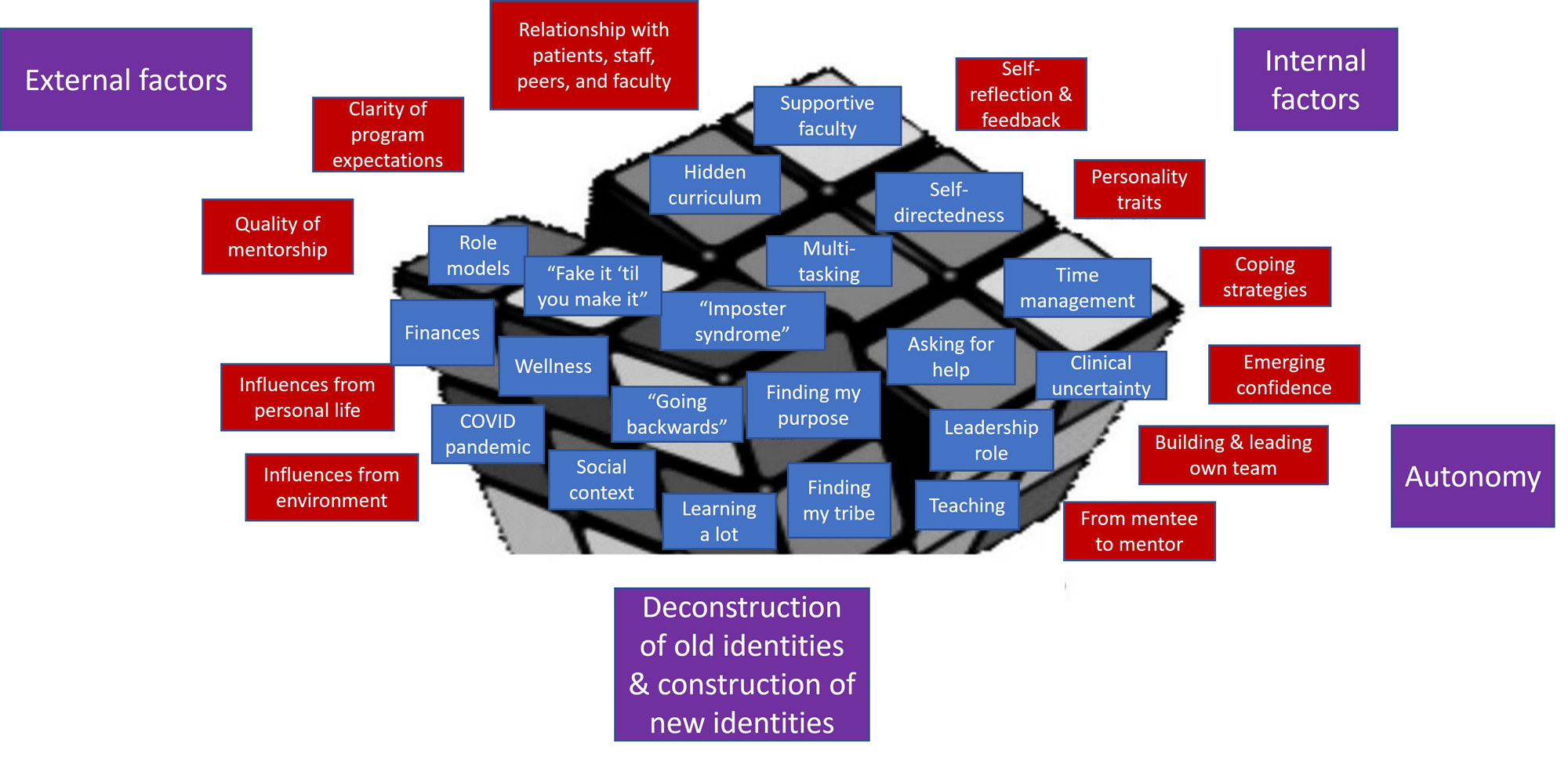Session Information
Session Type: Abstract Session
Session Time: 2:00PM-3:30PM
Background/Purpose: Transitions present many challenges for medical trainees, and a lack of preparedness for these transitions is associated with negative outcomes, including higher rates of burnout (Westerman et al., 2013). Fellowship program directors are tasked with guiding trainees as they transition from residency to fellowship and from earlier to later years of fellowship. Yet little is known about what facilitates successful transitions. A longitudinal study is well-poised to explore transitions and to arm program directors with the knowledge to support fellows through these vulnerable periods.
Methods: We conducted a qualitative longitudinal study of 6 pediatric rheumatology fellows, each at a different institution in the United States that varied by size, geography, and hospital setting. Consistent with qualitative longitudinal research methodology (Balmer et al. 2021), we completed in-depth, recursive interviews of the fellows annually during their three years of training. We created inductive codes from patterns in the data and clustered codes into more abstract themes. We organized the findings into an explanatory model analogized to a Rubik’s cube, drawing from multiple and multidimensional transitions (MMT) theory (Jindal-Snape & Hannah, 2014), which posits that individuals inhabit multiple, non-static domains (for example, distinct and evolving roles at work and at home) and that a transition in one domain triggers transitions in other domains.
Results: The successful transitions of pediatric rheumatology fellows were facilitated by: (1) deconstructing old identities and constructing new ones, (2) navigating internal and external factors, and (3) acting with increasing autonomy. Fellows who were initially plagued by imposter syndrome later expressed excitement about their integration into the rheumatology community. Internal factors included personality traits; coping strategies; and self-reflection and feedback. External factors included influences from personal life, professional life, and the environment; close relationships (with patients, peers, staff, and superiors), clarity of program expectations, and quality of mentorship all play roles. For fellows, recognizing their emerging confidence, building and leading their own teams, and shifting from mentees to mentors allowed for the development of graded autonomy. Ultimately, the search for a faculty position (“job search”) in the final year of fellowship requires the assembling of new identities, navigation of internal and external factors, and autonomous actions (Figure 1).
Conclusion: Our qualitative longitudinal study closes a gap in the literature by elucidating successful transitions for pediatric rheumatology fellows. MMT theory provides a theoretical framework to explain the interplay of the many factors facilitating these transitions (Figure 2). Program directors can guide fellows through transitions and “stick the landing” in the job search by directly managing external factors related to professional life, aiding in the development of autonomy and of skills that mediate the impact of internal factors, and supporting fellows through challenges in their personal lives.
To cite this abstract in AMA style:
Bayefsky S, Anderson H, Balmer D, Mehta J. Sticking the Landing: A 3-Year Qualitative Longitudinal Study on Navigating Transitions in Pediatric Rheumatology Fellowship [abstract]. Arthritis Rheumatol. 2023; 75 (suppl 9). https://acrabstracts.org/abstract/sticking-the-landing-a-3-year-qualitative-longitudinal-study-on-navigating-transitions-in-pediatric-rheumatology-fellowship/. Accessed .« Back to ACR Convergence 2023
ACR Meeting Abstracts - https://acrabstracts.org/abstract/sticking-the-landing-a-3-year-qualitative-longitudinal-study-on-navigating-transitions-in-pediatric-rheumatology-fellowship/


